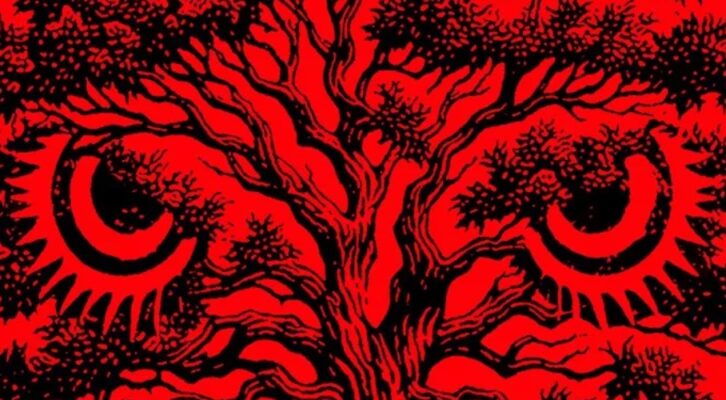
Can You Guess These Classic Novels From Their Library of Congress Subject Categories?
1. Married women. 2. Adultery. 3. Russia. = ?
If you are a particularly attentive—or simply thorough—reader, you may have noticed a certain listing on the copyright page of some of your favorite books: the Library of Congress’s catalog data.
For instance, in my favorite novel, said listing reads:
1. Teacher-student relationships–Fiction.
1. College students–Fiction.
3. Classicists–Fiction.
4. Murder–Fiction.
5. Vermont–Fiction. I. Psychological fiction. II. College stories.
(I imagine you can guess which novel this is.) The rules of cataloging are complicated, but in practice they boil down to a series of subjects (like “Classicists”) and a generic listing or two (like “College stories”).
The Library of Congress is the largest library in the world, containing a collection of “over 162 million books, periodicals, manuscripts, maps, music, recordings, images, and electronic resources.” According to the Library of Congress website, the catalog itself has 17 million records that describe these collections. The cataloging system began in 1898, and while some of the older records remain, they are being gradually updated to reflect contemporary language, and the Library of Congress staff catalogues about 350,000 bibliographic volumes per year.
This is only to say: there are a lot of these listings. Sometimes the subjects are spot on; other times they are laughably surface-level. Sometimes the subject categories rankle a modern reader (why are all the books about black people specifically categorized as such, when books about white people are not?). Not every book has cataloging data, and not every edition of a book will be the same. But once I started looking these up, I got addicted, and I thought some of you nerds out there might enjoy playing a little guessing game based on my findings.
Below, you’ll find 70 sets of Library of Congress cataloging data for classic novels (sometimes with proper names like, say, Bigger Thomas, removed, so they’re not total gimmes) with the answers hidden below (highlight the space after “answer” to see them). Some you will find very easy to guess; others less so.
Once you’re done, leave your score in the comments, and then proceed (if you’re still bored) to look up all your own favorite books in the Library of Congress Catalog.
Let the quiz commence:
1.
Social classes–Fiction.
Young women–Fiction.
Courtship–Fiction.
Sisters–Fiction.
England–Fiction.
Domestic fiction.
Love stories.
Answer: Jane Austen, Pride and Prejudice
2.
Depression, Mental–Fiction.
Women college students–Suicidal behavior–Fiction.
Autobiographical fiction.
Psychological fiction.
Answer: Sylvia Plath, The Bell Jar
3.
Fishers–Fiction.
Older men–Fiction.
Male friendship–Fiction.
Cuba–Fiction.
Bildungsromane.
Allegories.
Answer: Ernest Hemingway, The Old Man and the Sea
4.
Historical fiction, American–History and criticism.
African American women in literature.
Infanticide in literature.
Slavery in literature.
Ohio–In literature.
Answer: Toni Morrison, Beloved
5.
Triangles (Interpersonal relations)–Fiction.
Middle-aged women–Fiction.
Suicide victims–Fiction.
Married women–Fiction.
First loves–Fiction.
Parties–Fiction.
Regret–Fiction.
London (England)–Fiction.
Psychological fiction.
Domestic fiction.
Answer: Virginia Woolf, Mrs. Dalloway
6.
Governesses–Fiction.
Fathers and daughters–Fiction.
Mentally ill women–Fiction.
Charity-schools–Fiction.
Married people–Fiction.
Country homes–Fiction.
Young women–Fiction.
Orphans–Fiction.
England–Fiction.
Bildungsromans.
Love stories.
Answer: Charlotte Brontë, Jane Eyre
7.
African American women–Fiction.
Racially mixed people–Fiction.
Identity (Psychology)–Fiction.
Passing (Identity)–Fiction.
Female friendship–Fiction.
Human skin color–Fiction.
Married women–Fiction.
New York (N.Y.)–Fiction.
Answer: Nella Larsen, Passing
8.
City and town life–Fiction.
Married people–Fiction.
Young women–Fiction.
England–Fiction.
Domestic fiction.
Didactic fiction.
Bildungsromans.
Love stories.
Answer: George Eliot, Middlemarch
9.
African American women–Fiction.
Time travel–Fiction.
Slaveholders–Fiction.
Slavery–Fiction.
Slaves–Fiction.
Los Angeles (Calif.)–Fiction.
Southern States–Fiction.
Psychological fiction.
Science fiction.
Answer: Octavia Butler, Kindred
10.
Russian Americans–Fiction.
College teachers–Fiction.
Immigrants–Fiction.
Answer: Vladimir Nabokov, Pnin
11.
Triangles (Interpersonal relations)–Fiction.
Separated people–Fiction.
Upper class–Fiction.
New York (N.Y.)–Fiction.
Answer: Edith Wharton, The Age of Innocence
12.
Americans–France–Fiction.
Sexual orientation–Fiction.
Bisexuals–Fiction.
Paris (France)–Fiction.
Psychological fiction.
Answer: James Baldwin, Giovanni’s Room
13.
Teenage girls–Fiction.
Suicide victims–Fiction.
Friendship–Fiction.
Racism–Fiction.
Deaf–Fiction.
Southern States–Fiction.
Psychological fiction.
Bildungsromane.
Answer: Carson McCullers, The Heart is a Lonely Hunter
14.
African American women–Fiction.
Self-realization–Fiction.
Psychological fiction.
Answer: Zora Neale Hurston, Their Eyes Were Watching God
15.
Macondo (Imaginary place)–Fiction.
Latin America–Social conditions–Fiction.
Epic literature.
Answer: Gabriel García Márquez, One Hundred Years of Solitude
16.
Traffic accidents–Fiction.
Married women–Fiction.
First loves–Fiction.
Rich people–Fiction.
Mistresses–Fiction.
Revenge–Fiction.
Long Island (N.Y.)–Fiction.
Answer: F. Scott Fitzgerald, The Great Gatsby
17.
City and town life–Fiction.
Married people–Fiction.
Jewish men–Fiction.
Artists–Fiction.
Dublin (Ireland)–Fiction.
Psychological fiction.
Epic literature.
Domestic fiction.
Answer: James Joyce, Ulysses
18.
World War, 1939-1945–Fiction.
Americans–Europe–Fiction.
Rockets (Ordnance)–Fiction.
Rocketry–Fiction.
Soldiers–Fiction.
Europe–Fiction.
War stories.
Science fiction.
Answer: Thomas Pynchon, Gravity’s Rainbow
19.
End of the world–Fiction.
Humorous fiction.
Science fiction.
Satire.
Answer: Kurt Vonnegut, Cat’s Cradle
20.
African American men–Fiction.
Death row inmates–Fiction.
Trials (Murder)–Fiction.
Murderers–Fiction.
Chicago (Ill.)–Fiction.
Psychological fiction.
Answer: Richard Wright, Native Son
21.
Trials–Fiction.
Allegories.
Answer: Franz Kafka, The Trial
22.
Hackers–Fiction.
Business intelligence–Fiction.
Information superhighway–Fiction.
Nervous system–Wounds and injuries–Fiction.
Conspiracies–Fiction.
Japan–Fiction.
Science fiction.
Answer: William Gibson, Neuromancer
23.
Triangles (Interpersonal relations)–Fiction.
Man-woman relationships–Fiction.
Children of the rich–Fiction.
Children of clergy–Fiction.
Women household employees–Fiction.
Women murderers–Fiction.
Poor families–Fiction.
Wessex (England)–Fiction.
Pastoral fiction.
Didactic fiction.
Answer: Thomas Hardy, Tess of the d’Urbervilles
24.
Monastic and religious life–Italy–History–Middle Ages, 600-1500–Fiction.
Monastic libraries–Italy–Fiction.
Italy–Church history–476-1400–Fiction.
Church history.
Detective and mystery stories.
Historical fiction.
Didactic fiction.
Answer: Umberto Eco, The Name of the Rose
25.
Burial–Fiction.
Death–Fiction.
Mississippi–Fiction.
Stream of consciousness fiction.
Domestic fiction.
Answer: William Faulkner, As I Lay Dying
26.
Country homes–Fiction.
Household employees–Fiction.
England–Fiction.
Historical fiction.
Love stories.
Answer: Kazuo Ishiguro, The Remains of the Day
27.
Upper class families–Fiction.
Male friendship–Fiction.
Catholics–Fiction.
England–Fiction.
Domestic fiction.
Answer: Evelyn Waugh, Brideshead Revisited
28.
Totalitarianism–Fiction.
London (England)–Fiction.
Political fiction.
Dystopias.
Answer: George Orwell, Nineteen Eighty-Four
29.
Igbo (African people)–Fiction.
British–Nigeria–Fiction.
Men–Nigeria–Fiction.
Race relations–Fiction.
Nigeria–Fiction.
Historical fiction.
Answer: Chinua Achebe, Things Fall Apart
30.
Science fiction, English–History and criticism.
Horror tales, English–History and criticism.
Scientists in literature.
Monsters in literature.
Scientists–Fiction.
Monsters–Fiction.
Geneva (Switzerland)–Fiction.
Answer: Mary Shelley, Frankenstein
31.
Remarried people–Fiction.
Cornwall (England : County)–Fiction.
Romantic suspense fiction.
Answer: Daphne du Maurier, Rebecca
32.
Man-woman relationships–Fiction.
Misogyny–Fiction.
Women–Fiction.
Dystopian fiction.
Fantasy fiction.
Answer: Margaret Atwood, A Handmaid’s Tale
33.
Vampires in literature.
Vampires–Fiction.
Transylvania (Romania)–Fiction.
Whitby (England)–Fiction.
Psychological fiction.
Horror tales.
Answer: Bram Stoker, Dracula
34.
Appearance (Philosophy)–Fiction.
Conduct of life–Fiction.
Portraits–Fiction.
Didactic fiction.
Answer: Oscar Wilde, The Picture of Dorian Gray
35.
Europeans–Africa–Fiction.
Trading posts–Fiction.
Degeneration–Fiction.
Imperialism–Fiction.
Africa–Fiction.
Psychological fiction.
Answer: Joseph Conrad, Heart of Darkness
36.
Children of prostitutes–Fiction.
Fathers and sons–Fiction.
Sibling rivalry–Fiction.
Brothers–Fiction.
Salinas River Valley (Calif.)–Fiction.
Historical fiction.
Domestic fiction.
Answer: John Steinbeck, East of Eden
37.
Psychiatric hospital patients–Fiction.
Psychiatric nurses–Fiction.
Mentally ill–Fiction.
Psychological fiction.
Medical novels.
Allegories.
Answer: Ken Kesey, One Flew Over the Cuckoo’s Nest
38.
Brothers and sisters–Fiction.
Genetic engineering–Fiction.
War games–Fiction.
Science fiction.
Answer: Orson Scott Card, Ender’s Game
39.
Indians of North America–Fiction.
Teenage boys–Fiction.
Massacres–Fiction.
Outlaws–Fiction.
Mexican-American Border Region–Fiction.
Historical fiction.
Answer: Cormac McCarthy, Blood Meridian
40.
Murder–Kansas–Case studies.
Answer: Truman Capote, In Cold Blood
41.
Married women–Fiction.
Adultery–Fiction.
Russia–Fiction.
Answer: Leo Tolstoy, Anna Karenina
42.
African American women–Fiction.
Adult child sexual abuse victims–Fiction.
Abused wives–Fiction.
Sisters–Fiction.
Southern States–Fiction.
Answer: Alice Walker, The Color Purple
43.
Passivity (Psychology)–Fiction.
Genetic engineering–Fiction.
Totalitarianism–Fiction.
Collectivism–Fiction.
Psychological fiction.
Political fiction.
Science fiction.
Dystopias.
Answer: Aldous Huxley, Brave New World
44.
Capitalists and financiers–Fiction.
Boys–Fiction.
Humorous stories.
Answer: William Gaddis, J R
45.
Runaway children–Fiction.
Male friendship–Fiction.
Fugitive slaves–Fiction.
Race relations–Fiction.
Boys–Fiction.
Mississippi River–Fiction.
Missouri–Fiction.
Adventure fiction.
Humorous fiction.
Bildungsromans.
Answer: Mark Twain, The Adventures of Huckleberry Finn
46.
Young men–Fiction.
Failure (Psychology)–Fiction.
Answer: Saul Bellow, The Adventures of Augie March
47.
State-sponsored terrorism–Fiction.
Totalitarianism–Fiction.
Book burning–Fiction.
Censorship–Fiction.
Political fiction.
Satire.
Science fiction.
Answer: Ray Bradbury, Fahrenheit 451
48.
Fathers and daughters–Fiction.
Race relations–Fiction.
Trials (Rape)–Fiction.
Girls–Fiction.
Southern States–Fiction.
Domestic fiction.
Bildungsromane.
Legal stories.
Answer: Harper Lee, To Kill a Mockingbird
49.
Poor families–Fiction.
Girls–Fiction.
Brooklyn (New York, N.Y.)–Fiction.
Domestic fiction.
Bildungsromans.
Answer: Betty Smith, A Tree Grows in Brooklyn
50.
Psychiatric hospital patients–Fiction.
Inheritance and succession–Fiction.
Country homes–Fiction.
Art teachers–Fiction.
Deception–Fiction.
Nobility–Fiction.
England–Fiction.
Psychological fiction.
Gothic fiction.
Love stories.
Answer: Wilkie Collins, The Woman in White
51.
Man-woman relationships–Fiction.
Millionaires–Fiction.
Young women–Fiction.
Humorous fiction.
Diary fiction.
Answer: Anita Loos, Gentlemen Prefer Blondes
52.
Teenage boys–Fiction.
Criminals–Fiction.
Science fiction.
Satire.
Answer: Anthony Burgess, A Clockwork Orange
53.
Women–Louisiana–Fiction.
Adultery–Fiction.
New Orleans (La.)–Fiction.
Psychological fiction.
Love stories.
Answer: Kate Chopin, The Awakening
54.
Survival–Fiction.
Regression (Psychology)–Fiction.
Islands–Fiction.
Boys–Fiction.
Psychological fiction.
Answer: William Golding, Lord of the Flies
55.
Vampires–Fiction.
Imaginary interviews.
Horror tales.
Answer: Anne Rice, Interview with the Vampire
56.
Wolfdogs–Fiction.
Wolves–Fiction.
Animal welfare–Fiction.
Feral dogs–Fiction.
Pet theft–Fiction.
Sled dogs–Fiction.
Dogs–Fiction.
Klondike River Valley (Yukon)–Fiction.
Adventure fiction.
Nature stories.
Answer: Jack London, The Call of the Wild
57.
Women immigrants–Fiction.
Farmers’ spouses–Fiction.
Czech Americans–Fiction.
Women pioneers–Fiction.
Married women–Fiction.
Friendship–Fiction.
Farm life–Fiction.
Nebraska–Fiction.
Domestic fiction.
Western stories.
Answer: Willa Cather, My Antonia
58.
Physicians’ spouses–Fiction.
Suicide victims–Fiction.
Middle class–Fiction.
Adultery–Fiction.
France–Fiction.
Domestic fiction.
Answer: Gustave Flaubert, Madame Bovary
59.
Runaway teenagers–Fiction.
Teenage boys–Fiction.
New York (N.Y.)–Fiction.
Answer: J. D. Salinger, The Catcher in the Rye
60.
Marginality, Social–Fiction.
Mothers and sons–Fiction.
New Orleans (La.)–Fiction.
Answer: John Kennedy Toole, A Confederacy of Dunces
61.
Teenage girls–Fiction.
Fathers–Death–Fiction.
United States marshals–Fiction.
Outlaws–Fiction.
Revenge–Fiction.
Western stories.
Humorous fiction.
Answer: Charles Portis, True Grit
62.
Polo, Marco, 1254?-1323?–Fiction.
Kublai Khan, 1216-1294–Fiction.
Biographical fiction.
Answer: Italo Calvino, Invisible Cities
63.
City and town life–Fiction.
Science fiction.
Answer: Samuel R. Delaney, Dhalgren
64.
Lesbians–Fiction.
Sex addicts–Fiction.
Psychological fiction.
Answer: Djuna Barnes, Nightwood
65.
Surgeons–Czechoslovakia–Fiction.
Man-woman relationships–Czechoslovakia–Fiction.
Answer: Milan Kundera, The Unbearable Lightness of Being
66.
Hotelkeepers–Fiction.
Families–Fiction.
Occult fiction.
Horror tales.
Answer: Stephen King, The Shining
67.
Female friendship–Fiction.
Women novelists–Fiction.
Feminists–Fiction.
London (England)–Fiction.
Answer: Doris Lessing, The Golden Notebook
68.
Married women–Psychology–Fiction.
Mentally ill women–Fiction.
Sex roles–Fiction.
Answer: Charlotte Perkins Gilman, The Yellow Wallpaper
69.
Triangles (Interpersonal relations)–Fiction.
Illegitimate children–Fiction.
Women immigrants–Fiction.
Married women–Fiction.
Puritans–Fiction.
Adultery–Fiction.
Revenge–Fiction.
Clergy–Fiction.
Boston (Mass.)–History–Colonial period, ca. 1600-1775–Fiction.
Psychological fiction.
Historical fiction.
Answer: Nathaniel Hawthorne, The Scarlet Letter
70.
Mothers and sons–Fiction.
Sex addicts–Fiction.
Jewish men–Fiction.
Young men–Fiction.
Answer: Philip Roth, Portnoy’s Complaint
Emily Temple
Emily Temple is the managing editor at Lit Hub. Her first novel, The Lightness, was published by William Morrow/HarperCollins in June 2020. You can buy it here.



















